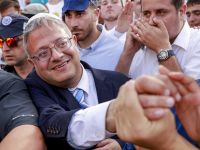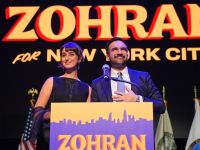Albawaba.Com
Bejaya
Leonardo Fibonacc, the Italian mathematician who introduced Arab decimal notation to Europe in the 13th century, is being celebrated in the Algerian town of Bejaya, where he formulated his theorems.
As part of UNESCO's World Mathematics Year, Bejaya University wants to revive the memory of this Italian scholar, who spent several years researching in the small city that was then a bastion of science. The young Leonardo came to Bejaya with his father, who was entrusted by the Italian republic of Pisa to oversee trade exchanges between his country and North Africa.
Born in 1180, he investigated the Arab decimal figures that had caused a revolution in mathematics and science. He soon understood the efficiency of the simple decimal system that tradesmen used.
Back in Pisa, Leonardo Fibonacci wrote a book "Liber Abbaci", dealing with the decimal system. The book played a crucial role in paving the way for the use of the Arab system in arithmetic and trade transactions throughout Europe. Fibonacci's book showed how to calculate the decimals of the universal constant Pi (3.142) - the ratio of a circle's radius to its circumference.
"Fibonacci was an exceptional scientist whose work revolutionized mathematics. The series he invented are still used in computers," said Jamil Assani, a professor at the University of Bejaya.
The university set up a scientific commission to supervise the writing and performance of a play based on the scientist's life in Algeria. Aimed at children, the play will be a small recognition of Fibonacci's efforts and is meant to perpetuate his memory, Assani says.
The three-act play tells how the young Leonardo arrives in Bejaya and how he discovered that people in this area did their calculations in a unique way. It also shows him studying at the "House of Wisdom," where all types of science and religious were taught.
During the 13th century, the city of Bejaya was a land of dialogue and tolerance, where Muslims, Christians and Jews lived side by side in harmony.
It also was a land of scientists’ par excellence during the 13th century. It was home to such renowned scholars as astronomer Hassan Ali, Al-Sharif Al-Idrissi, who was the first to tackle geography using mathematics, and Ibn Khaldoun, the founder of modern sociology as well as the Spaniard Raymon Lulle, who devised new navigation methods.
At the age of 16, his father took Leonardo to another bastion of science in the land of Islam - Cairo, where he perfected his theories.
© 2000 Al Bawaba (www.albawaba.com)







